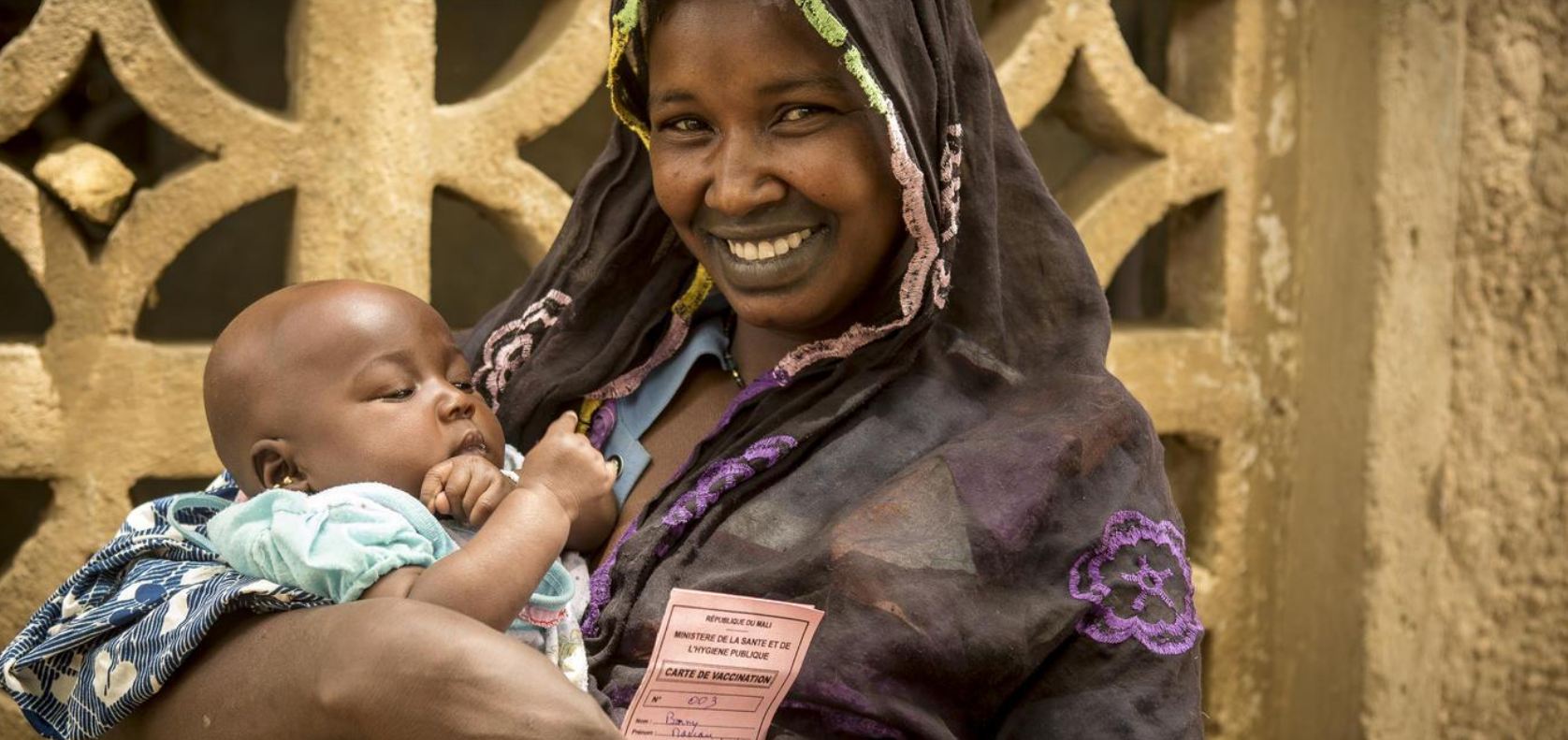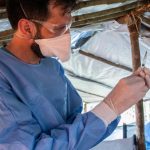
MOPTI, Mali ─ Mamadou, 29, travels for hours on a donkey-drawn cart under the hot midday sun. On his lap he carries a white insulated box. After filling it up with life-saving vaccines, he sets out on a sandy path to meet Aissata and her three-month-old daughter, Mariam, in the small village of Kankelena.
Growing insecurity in Mali’s central region of Mopti makes it challenging for mothers like Aissata to keep their children healthy. Walking to the nearest health centre is often too far and dangerous. And transport is too costly for many.
“I have enormous difficulties getting to the health centre,” says Aissata. “On top of the distance and the very degraded state of the path to get there, there’s the insecurity. We want to bring our children to the health centre, but because of the insecurity, we are very scared.”
In addition, transport options are fewer than they used to be. As a security measure, motorcycles have been banned between towns (militant groups are known for using them).
As a result, health workers like Mamadou have swapped motorcycles for donkeys to deliver life-saving vaccines. Others have resorted to horse carts or, when water is a barrier, wooden dugouts (boats made from a hollowed tree trunk).
“Life conditions here are very difficult because of the increasing insecurity. Women and children are the ones suffering the most. This is what motivates me to do what I do.”
Going the extra mile can save a child’s life
Aissata lost her first child to an undiagnosed illness. Unfortunately, she is not alone. In her village, many other parents have experienced the same tragedy. But even more tragically, some parents lost their children to diseases that are fully preventable ─ like measles.
“We had a measles epidemic in our health district just one month ago,” says Mamadou. Aissata’s third child was among the children who got infected. “He had pimples all over his body and face. He had fever and was very sick. He almost died,” she explains. “I was so afraid… Since then, I make sure all my children are vaccinated.”
Mopti is among the regions in Mali with one of the lowest levels of fully vaccinated children ─ only 37 per cent are. And since the security situation in the region deteriorated, the number of unvaccinated children has increased as much as four times, exceeding 70,000 children. Access is the biggest problem. Bringing healthcare as close as possible to children’s homes is a practical solution.
Having Mamadou come directly to her home makes all the difference to Aissata. “This door-to-door vaccination is a very good initiative. The vaccinator comes to us – we don’t have to put our children’s lives, and our lives, in danger.”
Once little Mariam and the other small children in the village have been vaccinated against measles, Mamadou packs up his vaccine box and gets ready to leave. He knows he has to make it home before the sun sets again. As he says goodbye, he reassures the mothers of Kankelena village. He will be back next month.











RSS